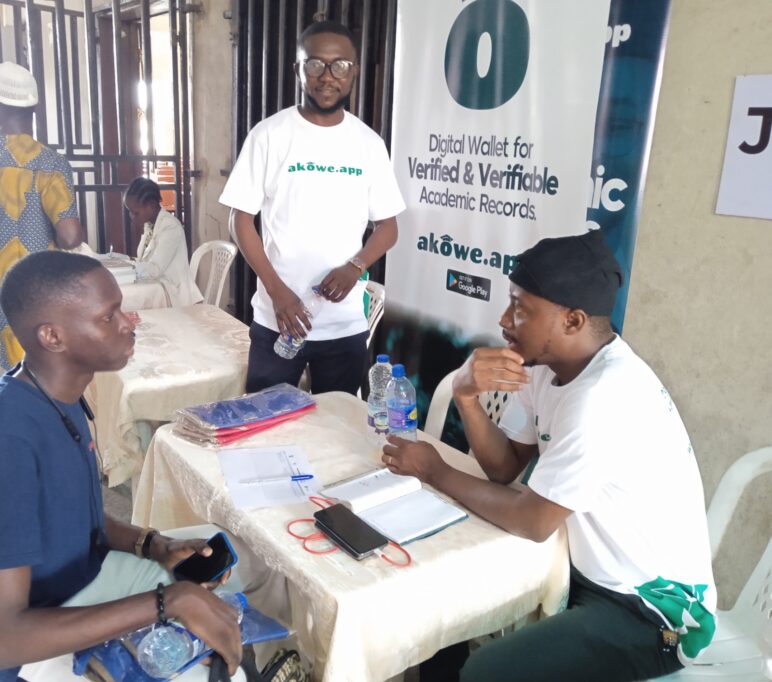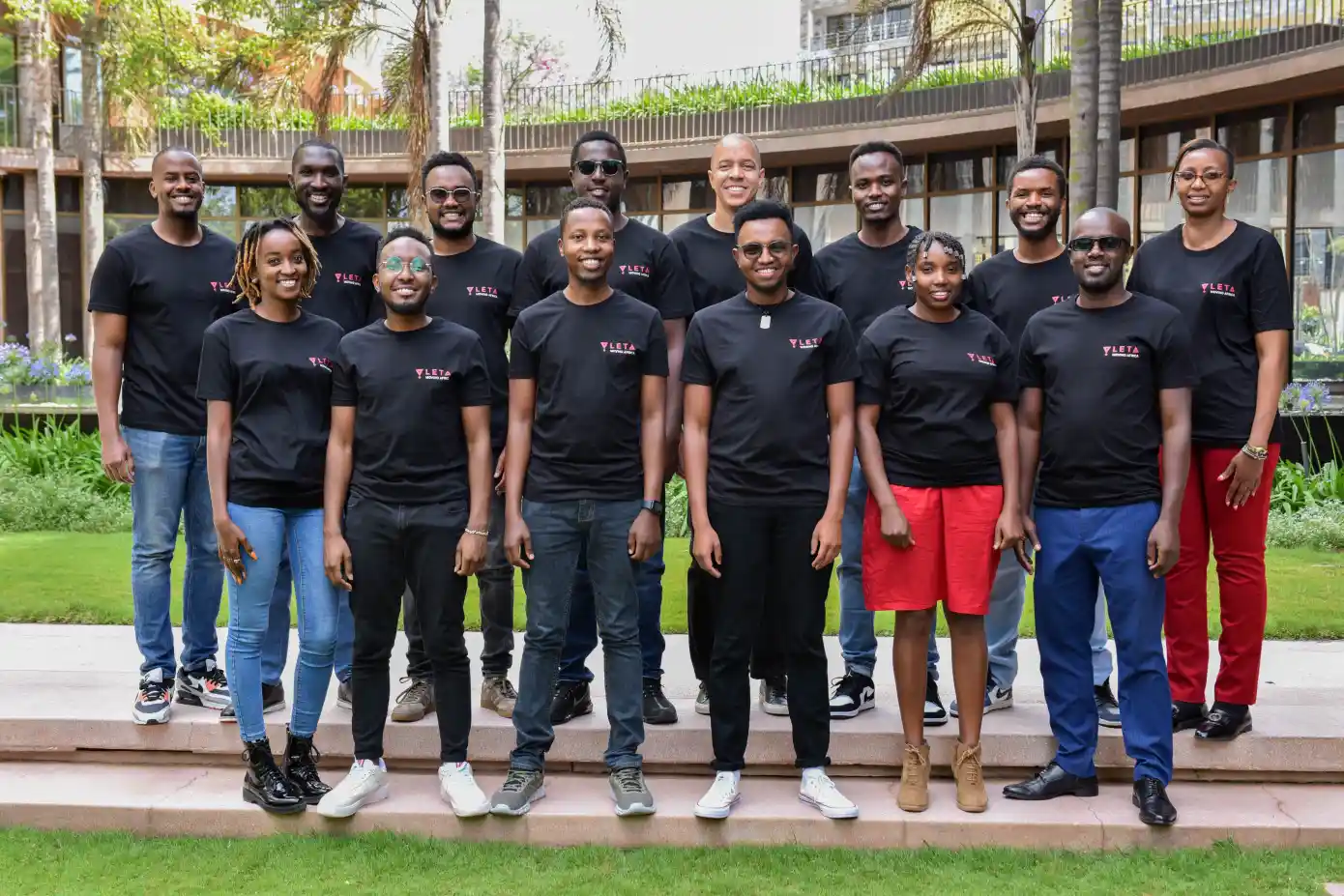Salve,
Victoria from Techpoint here,
Here’s what I’ve got for you today:
- Netflix denies exiting Nigeria
- Lying on resumes? 7 out of 10 do it!
- Kenya’s banks get more time to bulk up
Netflix denies exiting Nigeria

Netflix has shot down rumours about leaving Nigeria, saying it’s fully committed to its audience and the country’s entertainment industry.
Responding to the speculation, Netflix assured fans it’s here to stay and is actively working with Nigerian filmmakers to bring more local stories to life.
This reassurance comes after chatter on social media suggested the streaming giant might quit Nigeria due to economic challenges and regulatory hurdles. Netflix made it clear that those claims are false and highlighted its role in putting Nigerian productions like Blood Sisters, Anikulapo, and Shanty Town on the global map.
But here’s the thing: while Netflix has invested heavily in African content — $175 million between 2016 and 2023 — most of that money (a whopping 71%) went to South Africa. Nigeria, Africa’s largest economy and creative powerhouse, has received much less. This raises questions about how much Netflix is willing to bet on the Nigerian market long-term, especially given the high production costs and subscription affordability issues.
Some are wondering if Netflix might follow Amazon Prime Video, which recently scaled back its operations in Africa, cutting jobs and halting local investments. For now, though, Netflix seems committed to staying and growing its footprint in Nigeria, even if the financial investment doesn’t yet match the market’s potential.
Lying on resumes? 7 out of 10 do it!

Imagine hiring someone who claims they’re a certified expert, only to discover they’ve been winging it all along.
Credential fraud isn’t just a bad joke — it’s a global problem and one of the oldest scams in the workplace. From padded resumes to outright fake qualifications, some job seekers are willing to gamble with lies to land a role.
A 2023 survey by ResumeLab revealed that 7 out of 10 applicants lie on their CVs. Some inflate job titles, fake employment dates, or even conjure up degrees from universities they never attended. In high-stakes professions like medicine, where lives are on the line, the consequences of hiring unqualified personnel could be disastrous. That’s why companies are fighting back with stringent background checks and verification tools.
In Nigeria, where academic credentials play a significant role in the job market, the risks are even higher. This demand has fueled the growth of the verification industry over the past two decades.
Companies like Background Check International (BCI) have been leading the charge. Starting as a pioneer in employment screening, BCI now covers everything from tenant and vendor checks to spouse background verification.
But here’s the kicker: beyond just weeding out fraudulent candidates, these checks are about protecting investments and fostering trust in the workplace. Curious how this plays out in real life? Check out Oluwanifemi’s story for a closer look!
Kenya’s banks get more time to bulk up

Imagine running a small bakery and suddenly being told you need to raise ten times your current savings in just three years to keep your shop open. That’s pretty much what Kenya’s Central Bank told the country’s banks in June 2024.
But now, there’s a twist — Parliament’s finance committee wants to give them eight years instead. Oh, fair, right? But why does this matter? Let’s dive in.
Kenya’s Central Bank proposed a big jump in the minimum capital for commercial banks — from KSh 1 billion ($7.7 million) to KSh 10 billion ($77.8 million). The idea is to make banks more resilient to risks like cyber fraud and economic shocks.
Makes sense, right? But the initial deadline of three years wasn’t sitting well with smaller banks, which would struggle to meet this target without serious shakeups — think mergers, raising money through the stock market, or even shutting down.
The finance committee agrees the hike is necessary, especially since Kenya’s current requirement has been in place since 2012, but says, “Hey, let’s be practical.” Giving banks eight years to comply means smaller lenders get breathing room to strategise without destabilising the industry or harming their customers (that’s you in Kenya!).
Here’s why you should care: banking plays a huge role in Kenya’s economy, and the last thing we want is a shake-up that causes more problems than it solves. Some of the banks already struggling to meet current requirements include state-owned Consolidated Bank and Housing Finance.
If these lenders crumble under the pressure of a tight deadline, it could mean fewer banking options, higher fees, or disrupted services for everyday Kenyans.
Fun fact: Kenya’s $7.7 million minimum capital is peanuts compared to South Africa’s $90 million or Nigeria’s whopping $337 million. So, yeah, perhaps Kenya is overdue for an upgrade, but it’s all about finding the right balance.
This isn’t the first time Kenya has flirted with upping the requirements. Back in 2015, lawmakers rejected a similar proposal to raise the capital to KES 5 billion ($38.9 million). Will this new proposal stick? Only time — and eight years — will tell.
So, while the debate rages on, remember this: stable banks mean a stable economy, and how this unfolds affects everyone in Kenya, from the big players in Nairobi to the small-business owners across the country./
In case you missed them
- From barbers to therapists and even dentists, tappi wants to help businesses in Africa’s service industry earn trust online
- Oradian is driving sustainable financial inclusion through its core banking application
What I’m watching
- If You’re So Smart, Why Aren’t You Rich?
- Why is There NO Record of Ancient Humans? – Randall Carlson
Opportunities
- Pitch your big idea at the Entertainment Week Lagos Deal Room, happening from December 11–15, 2024, at Livespot Entertarium, Ikate, Lagos. Apply here.
- Join Opeyemi Olugbemiro at Pitch Friday on December 13, 2024 and discover the art of storytelling that wins customers. Apply here.
- Flutterwave is currently looking to fill several vacancies. Apply here.
- Moniepoint is hiring for several roles. Apply here.
- Learn about Sleeping Sickness and other NTDs! Dial 421 on your Airtel line now — you won’t be charged. You get 10 CALLS every month at zero charge. Afterwards, each call costs ₦10 regardless of duration. Alternatively, call 07080601391 at your network’s regular rate.
- Follow Techpoint Africa’s WhatsApp channel to stay on top of the latest trends and news in the African tech space here.
Have a terrific Thursday!
Victoria Fakiya for Techpoint Africa.











